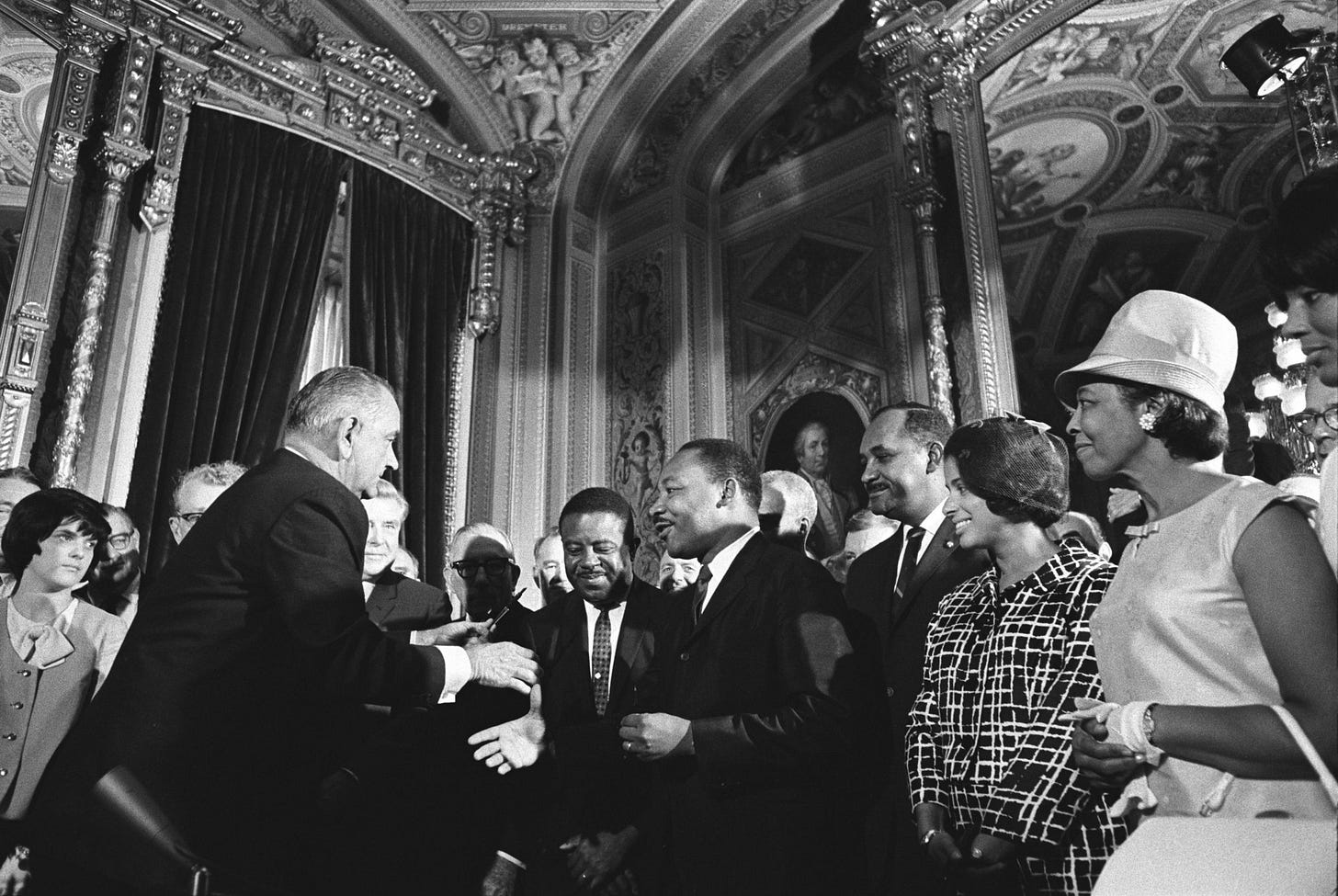I could never do justice in writing about the legacy of Martin Luther King Jr. His life was so much larger than mine, and his legacy is one that most of us will never come close to achieving.
I could quote from I Have A Dream and otherwise, but this would be lazy. Instead, let’s focus on a few accomplishments — nearly 70 years ago, he helped organize the Montgomery Bus Boycott in 1955 following the arrest of Rosa Parks. For over a year, Dr. King led a nonviolent protest that resulted in a Supreme Court decision overturning segregation within the bus system nationwide. Sixty years ago, in 1963, he led the Birmingham Campaign against police brutality and was subsequently jailed for his nonviolent protest. Because of his work in this area, the Civil Rights Act of 1964 was passed, outlawing discrimination in public places and discriminatory acts in hiring.
These are just a few of his many accomplishments and any one of them alone would have secured his place in the history books. However, you can comb your way through any year in his adult life and realize that this man could never be fully celebrated for the great accomplishments he has achieved.
Despite our progress, we have a long way to go, and we often take steps back. One of the biggest issues facing our city and cities everywhere is mental health crises. Today I want to focus on a specific area affecting people of color disproportionately, mental health care. Mental health care among people of color is grossly inadequate and if this problem is not addressed appropriately an injustice for one is a threat to justice everywhere.
We know that nationwide, people with mental illness are 16 times more likely to die within police custody than the average personal encounter. When deaths occur during mental health crises, it is estimated that people of color are overwhelmingly affected by this trend. However, the lack of reporting makes it difficult to do so accurately.
Herman Whitfield III
With a specific focus on Indianapolis, I stood in the rain with the Justice for Herman Whitfield III rally on Monument Circle this morning.
On April 25 last year, Mr. Whitfield had a mental health crisis, and his family called for an ambulance and mental health professionals to intervene. They did not claim that he was dangerous — they claimed he had a ‘psychosis.’ In the end, six armed officers were dispatched to the home. Within the hour, he was tasered and handcuffed, placed in a prone restraint, and eventually, his breathing stopped, and he died. It was far more graphic than this, but you can view the body camera footage yourself. I have watched enough of these videos professionally to recommend that you probably should not watch this unless you have to.
Mr. Whitfield was a talented musician. Reading through some of the comments of his friends and classmates was heartbreaking. I remember one of the comments from a fellow classmate at Brebeuf Jesuit Preparatory School, where his friend saw his size and asked what sport he played. His response was “the piano.” As a former musician, albeit one with far less talent, the piano has been a sport I’ve fought against my entire life. And as a musician who left the field to become a mental health professional because of the untreated illnesses I had seen, it is heartbreaking to know that we lost this man.
Before the event today, I spoke with two officers at a nearby coffee shop. I have known one of these officers for several years, and we often disagree. I asked for their opinions on the actions that led to Mr. Whitfield’s demise, and as I had guessed, they both disagreed with the causes. However, we did agree that very few officers feel it is their place to be involved with most mental health crises. They agreed that dealing with the unhomed and substance abuse issues should not be their responsibility.
Mental health professionals regularly have to defuse and de-escalate mental health crises, and we do so in a way that is different than police officers. Introducing armed men into this equation will always make this problem worse. And this is why I am calling for a civilian response force of clinicians, social workers, and therapists who can respond to such events. These people routinely do it in their positions with hospitals and are often called into dangerous situations within homes.
Read more at the Justice for Herman Whitfield III site.
I have detailed my response on my webpage and will continually update it there. Ultimately, no one needs to die simply because we cannot act fast enough to build a system that fixes this crisis.
https://clifmars.com/end-the-mental-health-crisis/
—
Clif Notes
Thank you for reading my second newsletter. My campaign to become mayor of your great city of Indianapolis is officially in its second week. We have raised a few hundred dollars and are still short of our goal of getting the official support we need, but I want to thank you all for donating as it gets us closer and closer!
And thank you for everyone sharing this campaign! Our second interview went out in the Indianapolis Business Journal this week! (Article Text)





